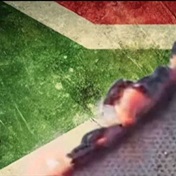‘It can never happen here” is a phrase we love to utter when we try to make the claim for South African exceptionalism.
We look at failed states and conflict regions, and convince ourselves that such will never befall us. We look at dictatorships and autocracies, and serve up the mantra that our democracy has enough safeguards to prevent a slide in that direction. We pity those embroiled in civil conflicts and confidently say our peace is permanent.
In this misplaced exceptionalism, we run the risk of lulling ourselves into a false sense of complacency. We are not exceptional.
This week’s burning of works of art at the University of Cape Town (UCT) should have jolted us out of this complacency and reminded us that our nation is still a work in progress.
To recap, students who were protesting over the lack of accommodation at UCT made a bonfire out of works of art that had been ripped down from the walls of residences. Most of the pictures were of white alumni and most of the works of art were by white artists. But in their ignorance, they also burnt a painting by anti-apartheid artist Keresemose Baholo.
Screaming “whiteness is burning!” these students told themselves they were striking a blow at white supremacy on behalf of the decolonisation movement. But their act of barbarism put the students in the fine company of the Nazi book-burners; the Taliban and Islamic State (IS) destroyers of ancient artefacts and monuments; and the jihadists who laid to waste large chunks of Timbuktu’s rich, precious heritage. They are co-travellers with the Khmer Rouge, who turned Cambodia’s National Library into a piggery and used bookshelves and books to make fire.
In the famous book-burning episode, the Nazis said they were cleansing society of un-German influences. The Taliban, the IS and north African jihadists have destroyed artefacts and historic structures because they believed these were sacrilegious and in conflict with their extremist brand of Islam. The Khmer Rouge simply placed no value on education and intellectualism.
It now appears that the achievement of universal access to higher education and the quest for transformation is at risk of descending into a nursery of hatred. The burning of images of white people and works by white artists is an ominous development. What this development – and the growing popularity of the “F**k whites” slogan among students – indicates is that the battle for the transformation of South Africa is being interpreted by young activists as a fight against the white race.
In societies that experienced ethnic conflict, the early warning signs were the dehumanisation of the other with labels and the blanket attachment of negative stereotypes. The signs were ignored.
We have to ask the question: How long before the burning of pictures of white people becomes the burning of white humans? The leadership of South Africa needs to drum into young people that the fight against racism and white supremacy is not a war on whites.




 Publications
Publications
 Partners
Partners








